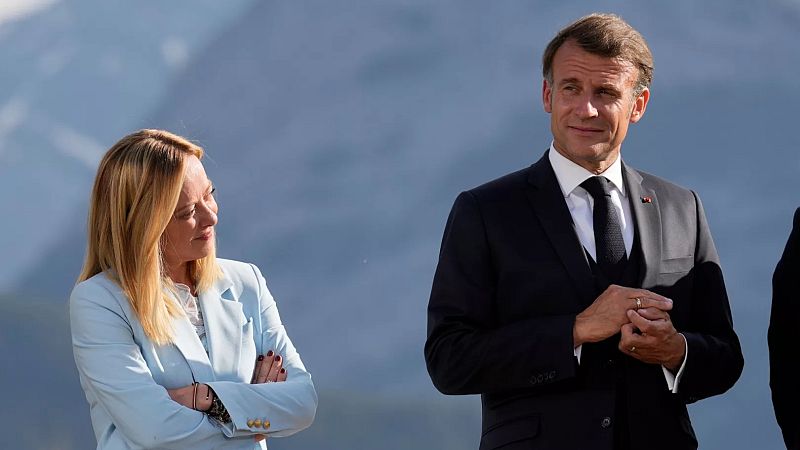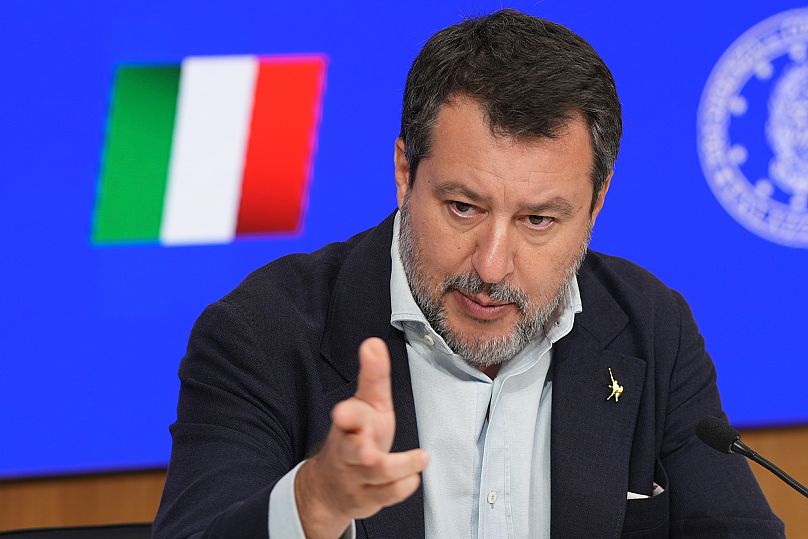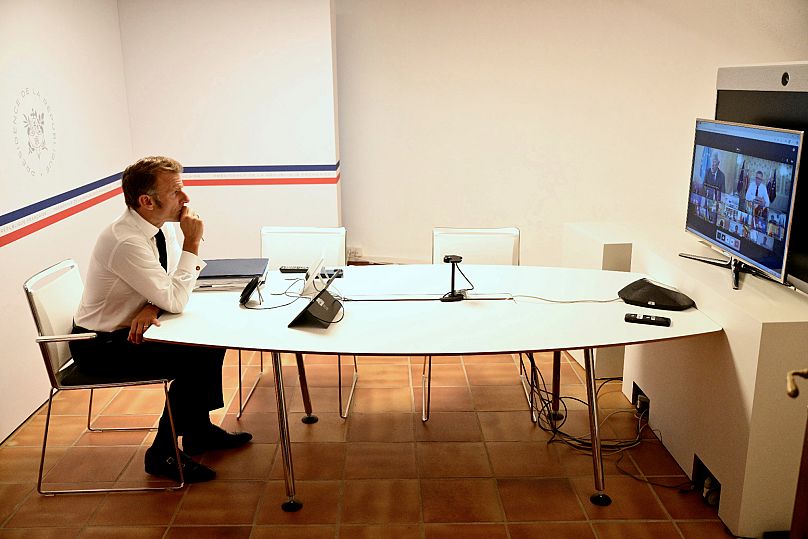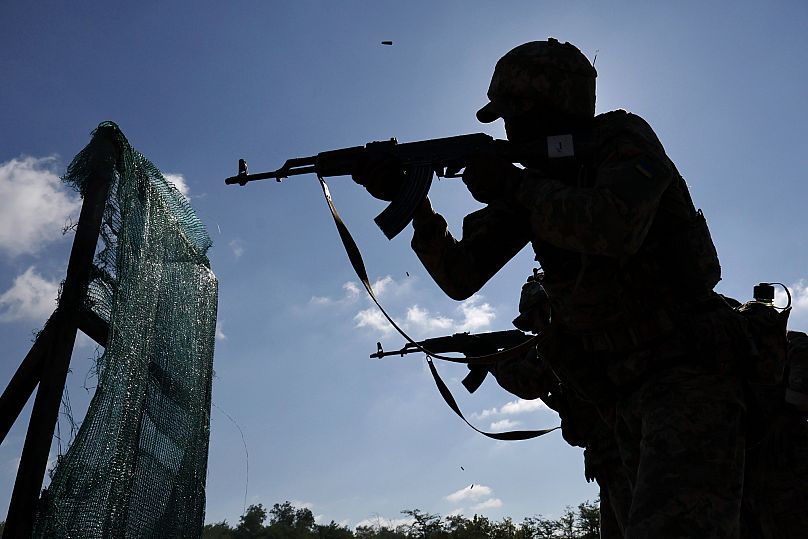European safety guarantees for Ukraine: The torch burns between Paris and Rome

Italy's Deputy Prime Minister Matteo Salvini's comments have set off a firestorm between France and Italy.
France summoned the Italian ambassador on Thursday after Salvini urged President Emmanuel Macron to put on a bullet-proof vest and go to Ukraine himself, in critical remarks about French support for the possible deployment of European peacekeeping troops in post-war Ukraine.
"Go if you want. Put on your helmet, your gun, your bullet-proof vest, go to Ukraine," the far-right MP said in remarks on Wednesday.
He also told the French president to "hang on to the tram," an expression that can generally be translated as "f**k off".
Salvini was on the attack again on Saturday at an event for his party Lega party, accusing Macron of using the war in Ukraine as a springboard to make up for alleged falling popularity in France.
"He has been harping on about war, the nuclear umbrella, bazookas, missiles and the European army for months now! Do you know why? In my opinion, they've put all this together because Macron's popularity at home is at an all-time low," Salvini claimed.
Security guarantees
This dispute highlights the differences among Europeans over the security guarantees they would be prepared to provide to Ukraine in the event of a peace agreement to deter any future Russian aggression.
France and the United Kingdom are calling for the deployment of a security guarantee force with air, sea and land components.
"This would not be a neutral force between the two parties, but a force alongside the Ukrainians that would aim to dissuade Russia from resuming its possible aggression against Ukraine by showing it that if it were to resume hostilities, this time it would not be facing the Ukrainians alone, but a coalition of countries in Europe," Élie Tenenbaum, Director of the Centre for Security Studies at the French Institute of International Relations (IFRI), told Euronews.
This force would not take the form of a "peacekeeping or interposition operation along the front line," but would be located "rather upstream, behind the front line, alongside the Ukrainians," he adds.
Macron is said to have taken the lead in the name of European strategic autonomy and the ability of Europeans to defend themselves.
"We have gradually seen, especially from 2023 and increasingly so in 2024 and 2025, Emmanuel Macron take up this issue and make security guarantees for Ukraine a staple of his policy and his vision for Europe," Tenenbaum added.
He also dismissed Salvini's accusations that the French leader was trying to distract from waning domestic popularity.
"I don't think today that political analysts and political advisers at the Élysée Palace believe that the Ukrainian issue is particularly promising in terms of domestic policy, even if it obviously contributes to the President's stature," he said.
Italian opposition
Rome is firmly opposed to the deployment of Italian soldiers in Ukraine to avoid any escalation and questions the effectiveness of sending European troops in the event of a peace agreement.
Instead, it advocates a collective defence mechanism inspired by Article 5 of the NATO Treaty, under which each country would undertake to provide assistance to Ukraine if it were attacked.
Italy "insists rather that it should not be its own troops present in a post-ceasefire scenario in Ukraine," Alberto Alemanno, professor of European law at HEC Paris, told Euronews.
Instead, it wants to "develop a NATO Article 5 model that would protect Ukraine without bringing it into the international NATO organisation, because we know that this is one of the red lines Russia is being asked to draw," he added.
According to the expert, this debate also reveals the internal divisions within the Italian coalition government. Prime Minister Giorgia Meloni supports Ukraine and has supported all sanctions against Russia. Conversely, Matteo Salvini's Lega, which has historic links with the Kremlin, regularly opposes European support for Ukraine.
The Italian Prime Minister also has to deal with the reluctance of her voters.
"Giorgia Meloni finds herself between a rock and a hard place. On the one hand, she has to satisfy her European membership and her rhetorical support for the NATO alliance; on the other, she also has to satisfy public opinion, including many of her own voters who are not very enthusiastic or at least not very interested in the idea of Italy being more involved in resolving this conflict," Alemanno said.
However, Rome and Paris, which are both part of the so-called Coalition of the Willing, could converge on other security guarantees for Kyiv.
And while their rhetoric may differ, France and Italy are not far apart in terms of their financial contributions to aid for Ukraine.
Today




